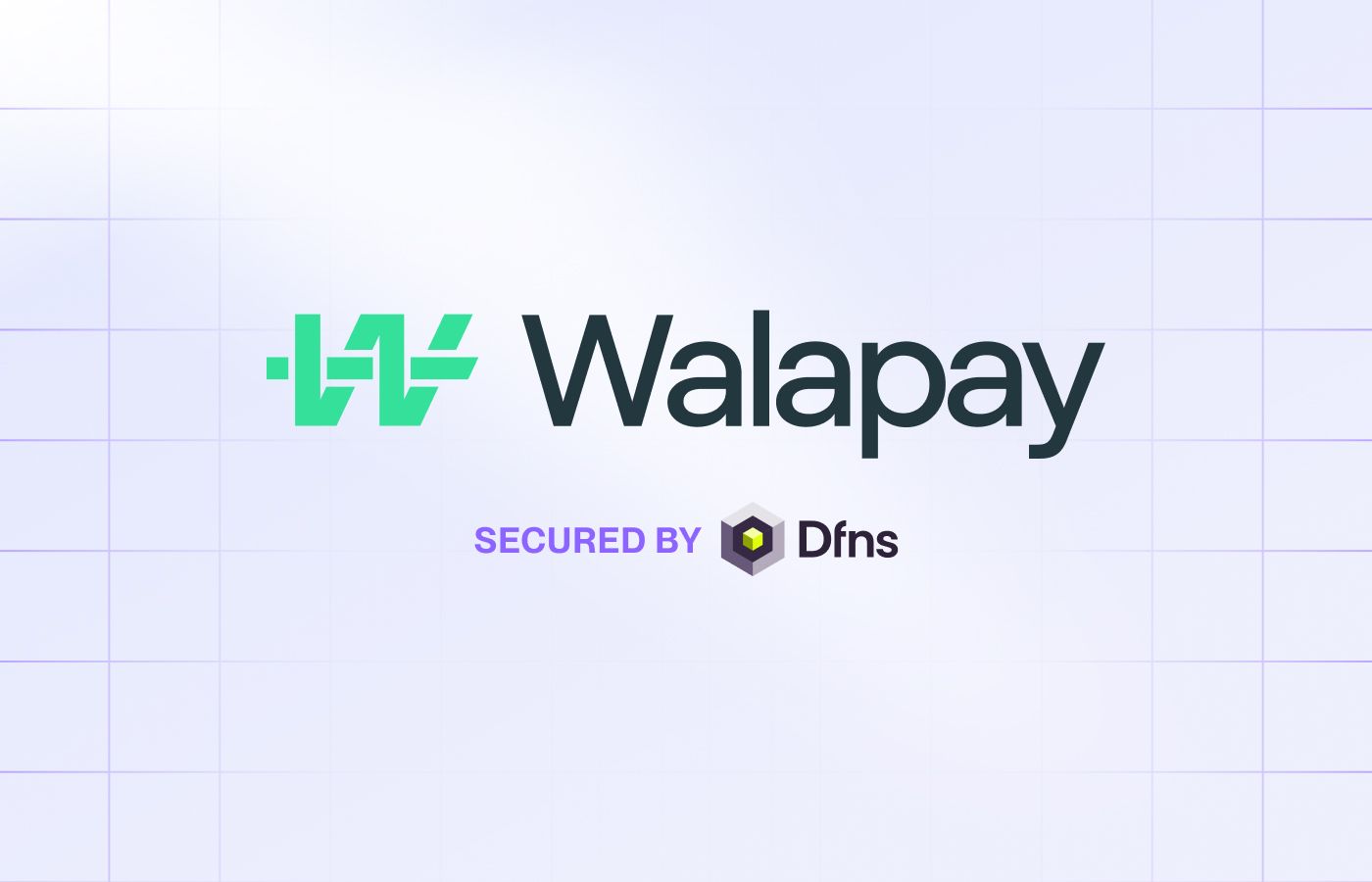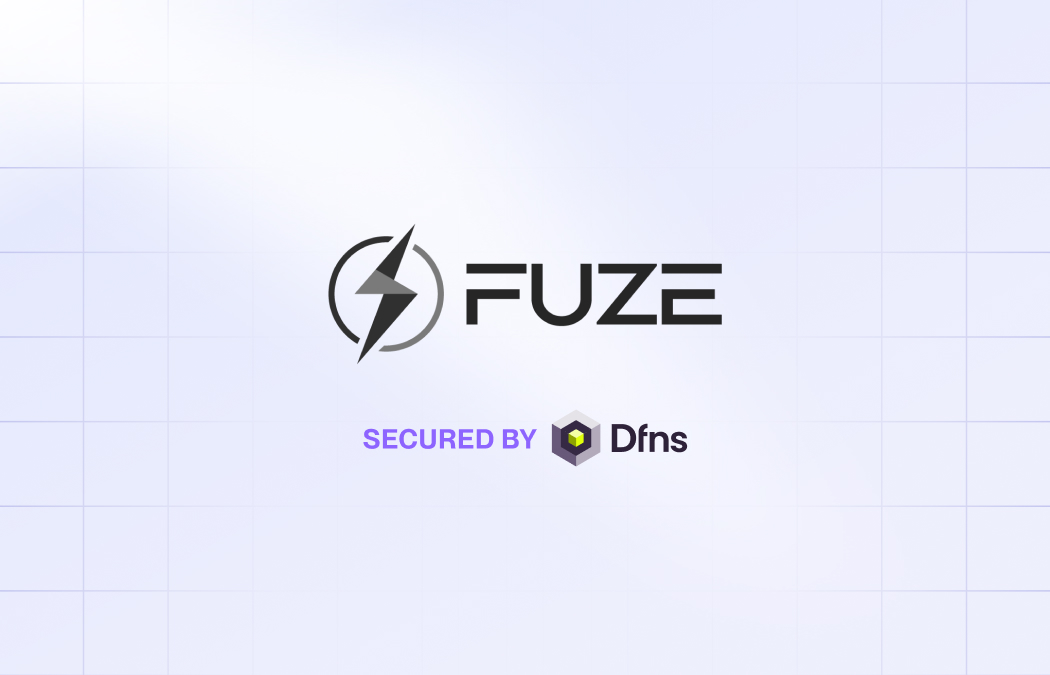
Walapay, a stablecoin-native platform for global money movement and management, has chosen Dfns to power their wallet infrastructure.
Walapay is built for platforms that handle complex global payments. It connects stablecoin rails with traditional banking through one easy-to-use API. Whether it’s paying contractors, settling with suppliers, or managing treasury across different markets, Walapay helps businesses move money faster, more efficiently, and with clear regulatory oversight. To power this, Walapay uses Dfns to manage its wallet infrastructure which can run both custodial and self-custodial wallets, automate transactions, and scale safely across 100+ blockchains while meeting high standards for compliance and auditability.
Fixing what global payments got wrong
Cross-border payments are still slow, costly, and fragmented, especially for platforms and businesses operating in regions like Latin America, Africa, and Southeast Asia. Whether it’s paying freelancers in the Philippines or settling suppliers in China, companies face outdated systems, hidden FX fees, and fragile correspondent banking networks.
Walapay was founded by brothers Tom and Dimitri Borgers to fix this broken infrastructure. After years working in global payments and helping build the early Ethereum ecosystem at Consensys, Tom saw a better way: programmable infrastructure built for how money actually moves today. Walapay simplifies global payments with a single API that connects stablecoin liquidity to traditional banking rails, making cross-border transfers faster, cheaper, and far more flexible.
Listen to Tom Borgers’ latest interview on Stableminded:
Real-world flows at scale from freelancers to fintechs
Walapay began by helping companies pay contractors in emerging markets like the Philippines and India, reducing 4–7 day wait times and cutting expensive FX fees to near zero, with real-time settlements. Today, Walapay powers B2B payments companies like Vizum, PSPs like Nuvei, and wallets and off-ramps for neobanks like Zarpay. Users get paid in USDC into self-custodial wallets. When they want to cash out, Zarpay calls Walapay’s API. Funds are routed via smart contracts, converted, and settled directly to local bank accounts in pesos, rupees, or naira. The results:
- Payment costs cut by up to 4×
- Settlements 10× faster
- No need for pre-funded accounts or nostro balances
- Average institutional payouts of $500,000
As stablecoin adoption grows across emerging markets, Walapay is becoming the go-to platform for real-time treasury management and cross-border payments. But Walapay isn’t just about sending money. Through its API, clients can create virtual accounts, automate compliance, manage stablecoin balances, and access yield-generating assets via partners like Agora. This turns idle funds into a source of revenue or user yield, making treasury infrastructure more efficient and valuable.
While traditional providers try to bolt stablecoins onto old systems, Walapay was designed from the ground up with a different view: stablecoins are the foundation. Value can move, convert, or settle flexibly depending on FX, compliance, or operational needs. The result is programmable liquidity that adapts to how businesses actually work.
Why choosing Dfns as their wallet infrastructure
Dfns lets fintechs and consumer apps offer secure self-custodial wallets, giving users full control of their assets without sacrificing speed, programmability, or ease of use. For PSPs and enterprise flows, Dfns supports custodial wallets with built-in integrations for qualified custodians, KYB checks, and real-time policy enforcement to meet strict compliance needs.
Governance and compliance are built in from day one. Dfns includes detailed controls like passkey and public key authentication, device registration (U2F), credentials management, and delegated authentication. Identity and access management (IAM) is fully integrated, with support for policies, roles and permissions (RBAC), wallet and IP whitelisting, session keys (PAT), delegated signing, and complete user lifecycle management.
Dfns also simplifies transaction lifecycle management. You get real-time visibility and control with blockchain indexing, token balances and metadata, ABI decoding, transaction history, and WalletConnect support. Developers can build and broadcast single or batch transactions, verify tokens, and handle high-volume flows with ease.
Under the hood, Dfns runs on a secure key management system using advanced multi-party computation (MPC) and threshold signatures (TSS). Keys are generated with distributed key generation (DKG) and protected with hardware-grade security via Trusted Execution Environments (TEE). Keys can be derived, rotated, refreshed, repaired, and recovered for disaster recovery and business continuity purposes. Dfns supports ECDSA, EdDSA, and STARK signatures across 100+ blockchains and third-party applications, with all signers either hosted securely by Dfns, or the client, or both.
This gives Walapay the flexibility to launch in new markets, expand to more chains, and tailor custody models by region or product without compromising on security, governance, or auditability. We’re proud to support Walapay’s mission to build programmable, compliant payment infrastructure for cross-border growth. Together, we’re helping platforms scale globally without the limits of legacy systems.
Start building with Dfns: https://app.dfns.io/get-started




